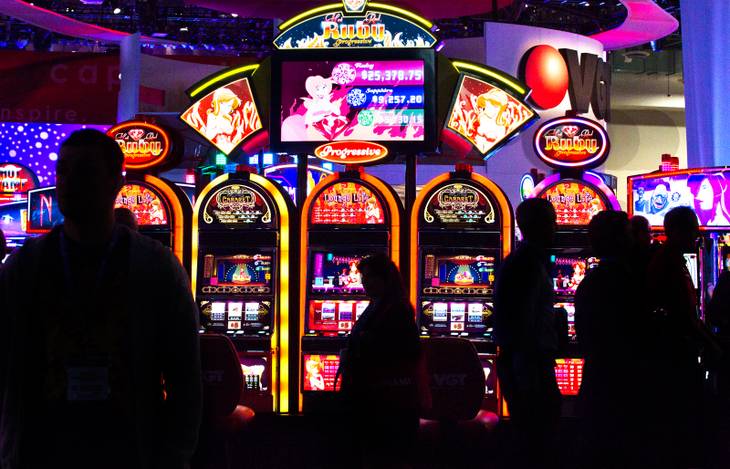Casino markets in many states have tightened their slot machines over the years, and that could be hurting revenues, according to recent industry-backed research.
The Association of Gaming Equipment Manufacturers on Wednesday announced the results of a report it asked Las Vegas-based Applied Analysis to conduct on the nation’s slot machine industry. Applied Analysis found that, in general, slot hold percentages — which reflect how much of gamblers’ money the machines keep — have reached “all-time highs,” even as slot revenue and wagers remain well below their peaks from before the recession.
In other words, customers don’t gamble as much on slots as they once did, and casinos make less money from the machines but take a greater share of the wagers.
The Applied Analysis report emphasizes that the slot market has been particularly hurt by the recession and its impact on consumer spending habits. But tighter machines are not helping, the report suggests.
“While statistical correlations on a state-by-state basis vary due to any number of factors, the broader, aggregate trends would suggest a rising hold percentage has not translated into incremental gaming revenue for operators during the post-recession era,” the report concludes. “In fact, they very well may be contributing to its decline.”
Applied Analysis examined the casino markets of 16 states, including Nevada. Overall, the report found that the amount gamblers wagered and the revenue casinos earned from slots declined by double-digit percentages between 2007 and 2014. At the same time, slot hold percentage increased 6.2 percent.
Some states diverged from the overall trend. Most notably, Florida’s hold percentage declined from 9.5 percent in 2006 — when slot machines began operating in the state — to 6.41 percent in 2014, according to the report.
Nevada’s 6.4 percent slot hold last year was higher than it was when slot revenue peaked in 2007, but it was still the lowest of any state examined in the report.
Broadly speaking, the argument against higher holds is that they make customers lose money faster and therefore spend less time gambling. But the relationship between hold and revenue is a complicated one affected by many variables.
An article in Global Gaming Business magazine earlier this year argued that slot revenue declines have been caused by “a perfect storm of changing game style, faster play, increasing minimum wagers, free play replacing cash coupons and yes, the economy.” Slot hold “is both a cause and result” of the factors affecting revenue, editor Frank Legato wrote.
The Applied Analysis report emphasizes how big of an impact the recession had, calling it a “triggering event that shifted the spend profile of consumers.” But the report also says that “consumer spending has improved in most major gaming markets throughout the United States in recent years, while gaming volumes have continued to contract.”
Marcus Prater, executive director of the manufacturers association, said the report was not meant to resolve debate, but rather to add more information to the industry’s ongoing conversation.
